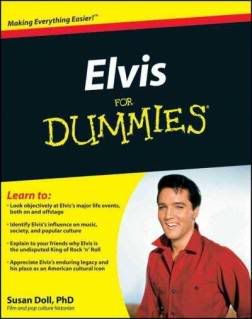It’s back to basics. Today’s Author Q&A is with Margie Blumberg, author, publisher, and non-practicing attorney. Her new e-book, The Scoop on Good Grammar, teaches basic English grammar and punctuation in a new, engaging, and non-intimidating way. Also the author of children’s books, Margie has won a number of awards, including Moonbeam Children’s Book Awards (Gold Medal, Picture Book/Preschool category, for Sunny Bunnies); New York Book Festival Awards (Honors for Sunny Bunnies and The Scoop on Good Grammar); and Association of Jewish Libraries, A Notable Book for Younger Readers (for Avram’s Gift). She lives in Bethesda, Maryland, where she continues to write, always using proper grammar. Write On!
What are the benefits of good grammar?
Speaking correctly can really take you places—not just physically, as in a job promotion to Hawaii, let’s say—but emotionally, in the hearts and minds of your listeners and readers. When you have good grammar, you can impress current or potential bosses, clients, patients, dates, and friends. Once you know the rules, you can spend more time thinking about what you are saying rather than how you are saying it. Knowing the rules makes writing that business report, sales pitch, or speech easier to compose and more pleasant for others to read or hear. It can also help you to excel—and to differentiate yourself from the competition—during a job interview. Good grammar is a must for those who have the greatest influence on others: parents, teachers, public speakers, politicians, celebrities, and news reporters. If you know English, there can be little chance of a misunderstanding. And if your ideas are as good as your grammar, you just might succeed in winning the approval you seek for a proposal—for designing a home, for landing more clients, or for making that deal to have your book published.
What are the three most common grammar errors?
1. One mistake we hear is the use of the compound pronoun myself in place of an objective pronoun. For example, people will say, Jim went to the meeting with my boss and myself. But they should say, Jim went to the meeting with my boss and me.
2. Using a subjective pronoun after a preposition, as in between you and I, is another mistake we hear. People forget that between is a preposition and that it’s the objective pronoun that follows. The objective pronouns are me, you, him, her, us, them, and it. I is a subjective pronoun. It belongs to this group: I, he, she, you, we, they, and it. Therefore, it’s between you and me, as in, “Please place the art book on the table between you and me.”
3. A very simple mistake is made when people forget that it’s—a contraction that means it is—is not the same as the possessive pronoun its. They sound alike, yes, but they mean two completely different things. Here’s an example that I think illustrates this confusion well:
* Every dog has it’s day.
Look what happens when we remove the apostrophe and put back the letter i:
* Every dog has it is day.
This sentence makes no sense at all. That little apostrophe makes all the difference, doesn’t it?Here’s the sentence again with the correct word:
* Every dog has its day.
Any clues/tricks for self-proofing?
1. When deciding between me and I, for instance, as in Dave bought a lovely present for Jim and I (or me), remove the noun (Jim) and restate the sentence: Dave bought a lovely present for me. You would never say Dave bought a lovely present for I, would you? That’s one good way to self-test.
2. Another way to self-test is to remove everything but the pronoun in question in a compound subject:
* Jim, John, Jane, and I bought a house. Lots of people are so unsure about using I as the subject of a sentence when there’s more than one noun or pronoun in the subject that they’ll opt for what sounds neutral: myself. They’ll say Jim, John, Jane, and myself bought a house. Now remove Jim, John, Jane, and and. Would you ever say Myself bought a house? I didn’t think so.
How did this book come about?
More and more, I was beginning to notice that members of the media, guests on TV and radio shows, and people I knew were making grammatical mistakes: The nurse at my doctor’s office told me to lay down. (She should have told me to lie down.) An invitation arrived with incorrect punctuation: The Newman’s (instead of the Newmans) cordially invite you to a party! One day, as I was talking with my boyfriend about the mistakes I was noticing, it hit me: Maybe people can’t learn the rules because traditional books are too boring and stuffy. “I know!” I said. “I’ll write a book that’s just the opposite. It’ll be user-friendly, colorful, and fun!” And 18 years later, I finished that book.
What was the publishing process?
The Scoop was easy to publish, and that’s because it’s paperless. It’s an e-book. As a PDF, it still required the skills of two fabulous graphic designers—one for the cover and another for the interior—just as any book requires. A knowledgeable Web architect uploaded the book onto my site. And as for the most important part—the readers—they simply have to press a button to get the book. Downloading completes the publishing process. For what’s a published book without readers?
Why did you choose an ebook for this project?
I chose to publish the book as a PDF for three reasons. First of all, as compared to the price of a hardcover book, this full-color ebook, which is 246 pages long, is much more affordable. It’s very important to me to make proper grammar accessible to everyone. Also, language evolves. As a PDF, the book can be re-uploaded in minutes. I can, therefore, add new information at any time, ensuring that my readers will always have the most relevant, comprehensive information available. Finally, by developing an ebook, people will have key information about grammar right at their fingertips on their computer, which is where they do most of their writing.
What was your favorite part of writing the book? The greatest challenge?
I had to marry each lesson to something interesting in our culture. Finding stories or facts about people, sports, food, and art, for example, to make the grammar lessons memorable was a real challenge. And I decided to write about those things that I knew little or nothing about so that I could learn too, which made the book extra-challenging to write. But that’s also what made writing the book so exciting! My favorite part, though, came after the actual writing: I really enjoyed searching for the photographs to accompany the lessons. That part was challenging too, but it was fun. For example, I got to reconnect with a friend from my childhood. He provided me with that stunning painting of Lincoln. And searching for a delicious-looking piece of chocolate cake was truly a labor of love!
How do you balance the different aspects of your career?
In a word, it’s all about organization. Because I’m writing, working with artists, doing bookkeeping, negotiating with printers, reading manuscripts, and talking with agents, my workday is packed. And until recently, I was overwhelmed. But now I have a system that works. It took me 20 years, but I finally figured it out: Calendars, files, and lists are essential!
Advice for writers?
Not that I always follow these rules, but I do try: Try not to let your day get away from you: Take care of yourself. Start the day with a good breakfast. Make time for family and friends. (The inspiration for most of my books has come from being with people and doing things.) Exercise: I have found that my best ideas come when I’m actually getting oxygen to my brain—even if I’m just pedaling on my stationary bike. Find a great editor: All good writers have great editors. And great editors know their grammar! Last but not least, whenever you’re stuck (and even when you’re not), read: I’ve discovered that I’m able to focus even more on my own work when I take a break to read something wonderful that’s been written by someone else.
What do you know now that you wish you knew when you first started writing?
I know now that wherever you are, there are always people who are ready, willing, and able to guide you. You just have to have enough confidence in yourself to pick up that phone or write that email. Don’t ever be afraid to reach out.












Comments are closed.
[…] Margie Blumberg, The Scoop on Good Grammar […]
[…] Margie Blumberg, The Scoop on Good Grammar […]